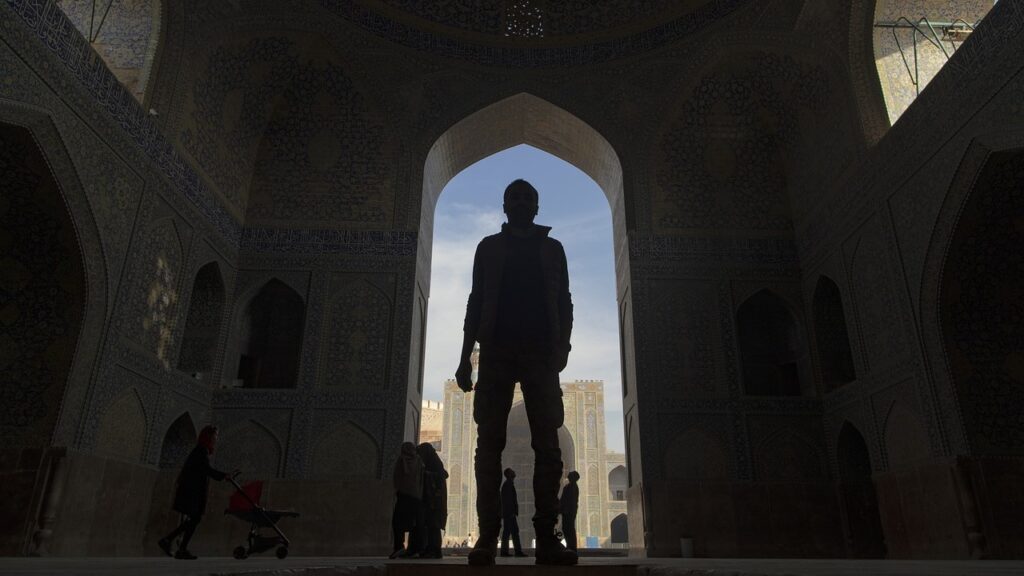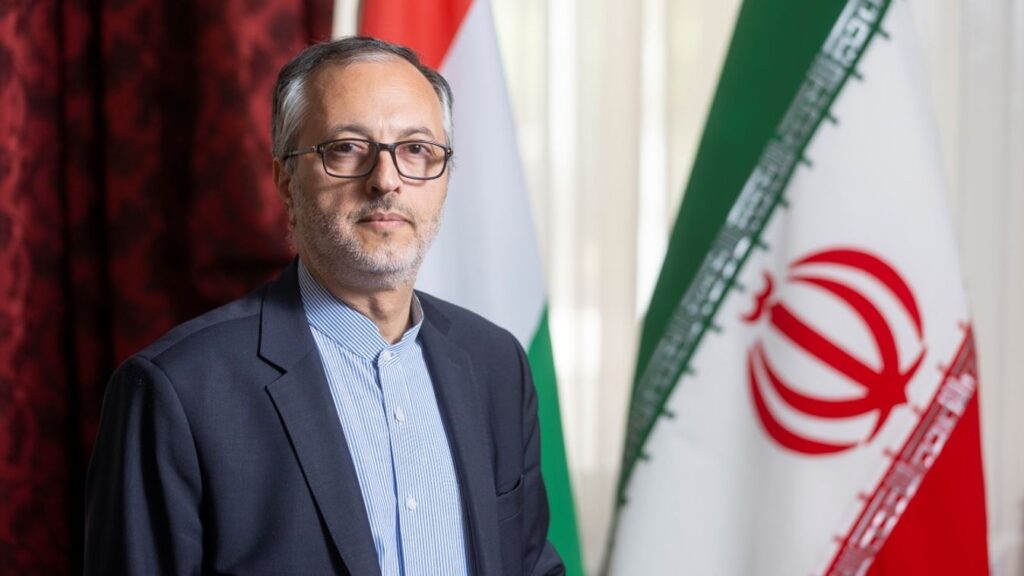Greta Thunberg and Germany’s—in Sahra Wagenknecht’s words—‘Lifestyle Left’: a true match made in heaven, or so it seemed for the last couple of years. There is virtually no mainstream press and political elite that have embraced Thunberg and her brainchild, the ‘Fridays for Future’ movement with more passion than those of Germany.
It was no lesser a personality than Angela Merkel who justified the Swedish activist’s rather out-of-line appearance at the 2019 UN Climate Action Summit, where the latter delivered her infamous and, to be honest, quite pathetic ‘How dare you?’ speech. Merkel also held a reception for Thunberg and her perhaps most loyal German comrade, Luisa Neubauer in 2020 in Berlin. Ever since, Germany’s political elite can’t seem to be able to curb its enthusiasm for Thunberg, who, in the meantime, at age 20, has finally managed to complete her secondary school studies.
Not so long ago, some German far-left activists occupied the minute village of Lützerath, which was set to be demolished to give room for the expansion of a nearby coal mine. Lützerath’s occupation had gone on for several weeks despite an existing court ruling authorising the demolition. German riot police were ordered to the scene to disperse protesters.
And just when the media hype around Lützerath peaked, Greta Thunberg popped up in the village.
Thunberg, obviously, sided with the activists, and as she appeared in front of the TV cameras in the muddy outskirts of Lützerath, she seemed to suggest that the cause of climate protection—or the occupation of the village itself—was more important than the rule of law, which is otherwise so often praised in Germany.
Thunberg’s Lützerath stunt was then quickly forgotten as police slowly dismantled the camp in the village. But the Swedish climate activist has recently attracted the attention of the German media again, only this time the reports are not nearly as favourable and enthusiastic as before.
The reason for the limelight is, of course, that Thunberg and some of her comrades posted a picture on Fridays for Future’s Instagram at the beginning of the Hamas–Israel conflict, holding up banners in support of the Palestinians. The post sparked outrage around the world, with some saying Thunberg and her comrades are supporting the Palestinians because they know nothing about the background of the conflict, while others argues that they are simply anti-Semitic.
The latter suggestion is of course interesting in itself, but in any case, there is a consensus in much of the Western world that those who are not on Israel’s side in the conflict are more or less anti-Semitic or, at best, simply ignorant; just as it seems clear that many far-left movements, such as Black Lives Matter, have difficulty distancing themselves from the Palestinian terrorists in general and from Hamas. The fact that Greta Thunberg of all people, who grew up in one of the most liberal states in Europe, in an environment of unfathomable wealth and prosperity, fails to grasp which views are acceptable regarding the conflict and which are not, is both stunning and amusing.
But she would not be Thunberg if she did not immediately double down on showing solidarity with the Palestinians.
She has even voiced the opinion that the Western media ‘brainwashes’ people about Israel, and recently wore a Palestinian scarf to a climate protest in Amsterdam, where she said that climate justice cannot be done on occupied land, that is, in the Gaza Strip. To crown the performance, a protester rushed onto the stage and tried to rip the microphone out of Thunberg’s hand, saying he was there for a climate protest, not for a political speech.
(Of course, a bad-mannered journalist might wonder whether the heroic Dutchman was also bothered by, let’s say, Fridays for Future’s support for the so-called ‘LGBTQ community’—which is not one bit less of a political issue—, or why anyone would go to a demonstration if they didn’t want to be political. The bad-mannered journalist chuckles to himself.)
Not everyone is chuckling, though. Take Thunberg’s German comrades for example. Fridays for Future has been able to gather a considerable number of supporters in Germany, where climate change is one of the major concerns for much of the public, especially in the younger cohorts. Merkel’s example shows that even German politicians have found it worthwhile to be seen in Thunberg’s company, but the Swedish activist’s pro-Palestinian statements have clearly blown the fuse in Germany.
Germans often pride themselves on the perception that their public discourse is diverse and open, but in reality, this is relatively rarely the case. On truly divisive social issues—let’s face it, the Arab–Israeli conflict is far from being a clear-cut issue in Germany or in other countries—there is no room for debate at all. The very expressive German language refers to this phenomenon as ‘Denkverbot’, i.e. ‘thinking ban’. In Germany today, Denkverbot applies, for example, to the perception of the European Union, to the support for mass immigration, and to the assumption that there are not only two genders.
Moreover, the Arab–Israeli conflict is subject to a tightened version of the Denkverbot, which is not so surprising in the light of historical experience and the ‘Schuldkult’—the culture of guilt—that has become a state religion since the end of the Second World War. Israel’s security, say German politicians like Angela Merkel and Olaf Scholz, is Germany’s Staatsräson, or raison d’état, which really cannot be questioned. Except that Greta Thunberg is doing just that.
Of course, this is very unstable ground in Germany, since disagreeing with the Staasräson is ‘naturally’ anti-Semitic, and in the German public discourse this has long been the exclusive preserve of neo-Nazis and other far-right extremists (Muslim immigrants and far-left antisemitism are usually less talked about). Thunberg’s German comrades face a stark choice: should they follow the Swedish activist on this matter?
Luisa Neubauer and her comrades seem to know well the saying ‘he that touches pitch shall be defiled’.
Fridays for Future Germany has repeatedly distanced itself from Greta Thunberg’s statements, saying that they do not compromise on antisemitism and that protecting Jewish lives is important to them. ‘She [Greta Thunberg] does not represent Fridays for Future Deutschland’, they tweeted.
But it seems they have not managed to convince everyone. Josef Schuster, the president of the Central Council of Jews in Germany, has called on the movement to change its name. ‘To me it is inexplicable how Fridays for Future still sails under her [Thunberg’s] banner’, Schuster said.
The movement is in no hurry to change its name for the time being. According to Neubauer, this is a secondary issue; she believes that content is more important. It is understandable, of course, why they are taking their time: Fridays for Future is a well-established brand, known throughout the Western world—who would want to say goodbye to this just because the Swedish climate shaman at the top is a little less committed to the cause of Israel than the German public would expect? Volkswagen hasn’t changed its name either just because the Käfer was so popular with Hitler.
But in the end, it seems that the disciple, even if not too enthusiastically, is disowning its master. Lützerath and the agitation against a binding court ruling still went for Fridays for Future Deutschland, but the pro-Palestinianism was too much. It seems that the climate revolution of middle-class youth can be stopped indeed.
What will happen to Thunberg is a much more exciting question. The Swedish activist was previously praised by so many for her maturity and insight, so regarding these most recent developments, it would be hard to blame the pro-Palestinian drift on the fact that Greta Thunberg is still very young and therefore perhaps less aware of the big and complex issues of the world. Who knows—may Greta Thunberg become an embarrassment for good? We will soon find out. The Western public has been robbed of figures much bigger than her before.
Related articles:








